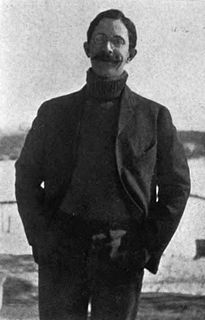A Quote by Annalee Newitz
Fifty years ago, historians advised politicians and policy-makers. They helped chart the future of nations by helping leaders learn from past mistakes in history. But then something changed, and we began making decisions based on economic principles rather than historical ones. The results were catastrophic.
Quote Topics
Related Quotes
For the last one hundred and fifty years, the history of the House of Rothschild has been to an amazing degree the backstage history of Western Europe...Because of their success in making loans not to individuals but to nations, they reaped huge profits...Someone once said that the wealth of Rothschild consists of the bankruptcy of nations.
Women are afraid. It is unpopular to question the bible. They are creatures of tradition. They fear to question their position in the testament, as they feared to advocate suffrage fifty years ago. Now they are quarreling as to which were among the first to advocate it. You see they are not used to abuse as I am. In Albany, fifty years ago, when I went before the legislature to plead for a married woman's right to her own property, the women whom I met in society crossed the street rather than speak to me.
There will come a moment when the most urgent threats posed by the credit crisis have eased and the larger task before us will be to chart a direction for the economic steps ahead. This will be a dangerous moment. Behind the debates over future policy is a debate over history-a debate over the causes of our current situation. The battle for the past will determine the battle for the present. So it's crucial to get the history straight.
Yes, business really does change. 400 years ago, corporations were formed by royal decree. 300 years ago, many countries were powered by slave labour, or its closest moral equivalent. 200 years ago, debtors didn't go bankrupt, they went to prison. 100 years ago - well, business is largely the same as it was a century ago. And that's exactly the problem. Business hasn't changed, but today's array of tectonic global shocks demands a different, radically better kind of business. Yesterday's corporations visibly cannot meet today's economic challenges.
































